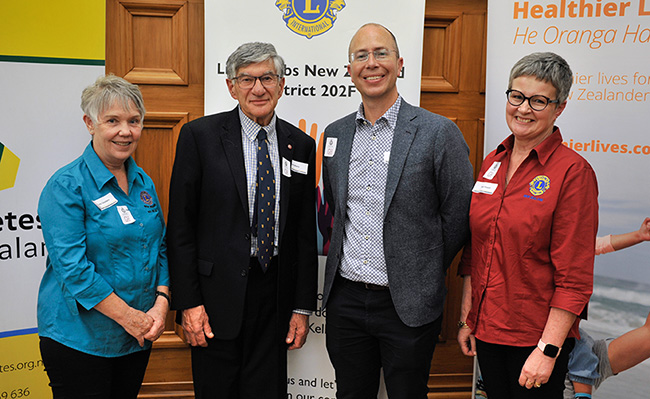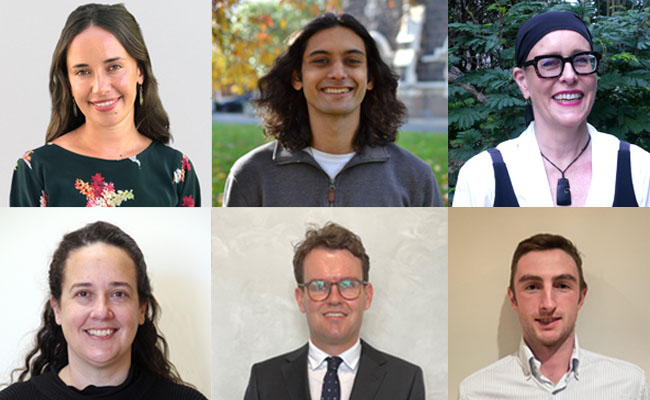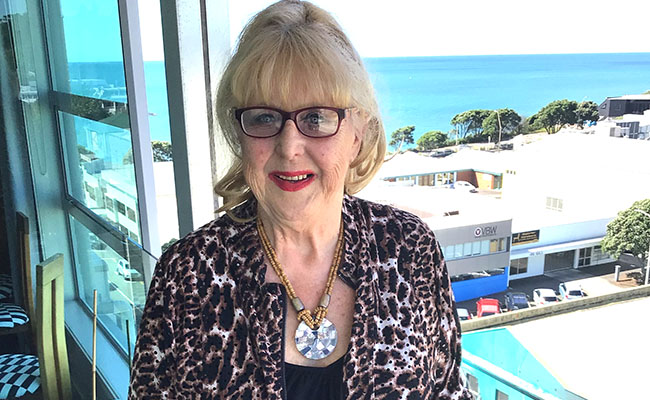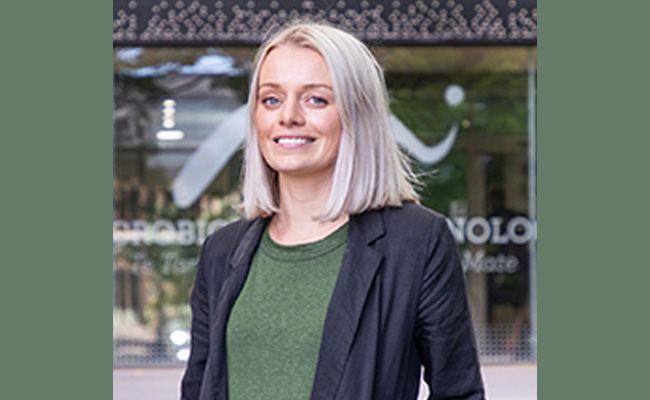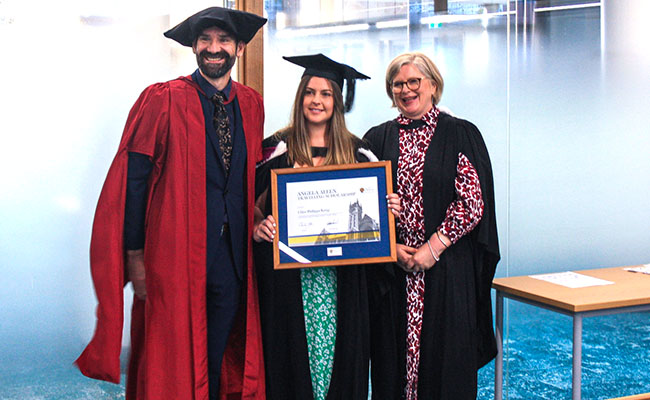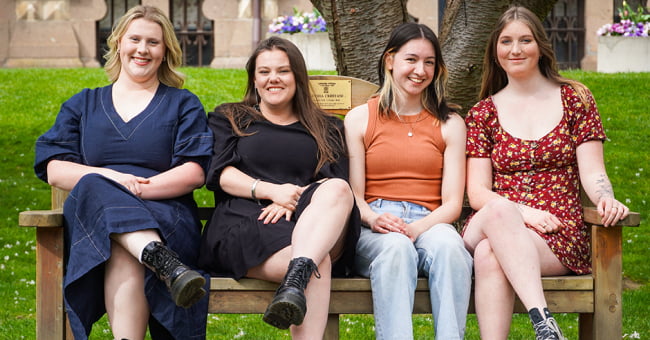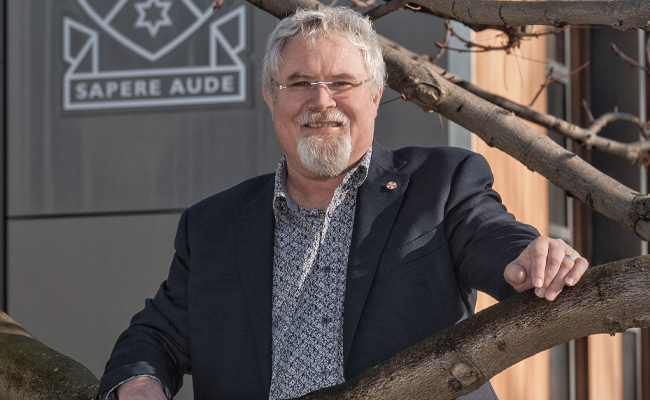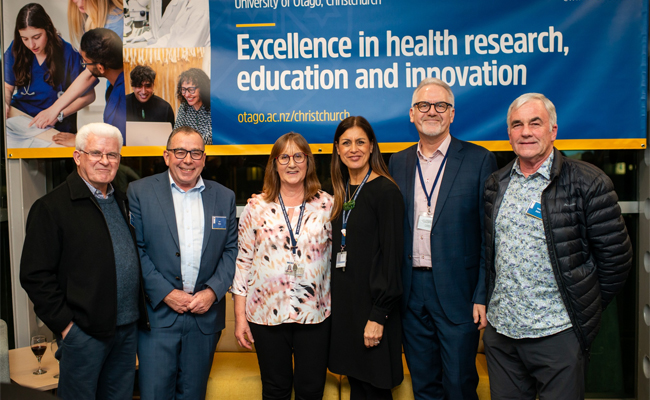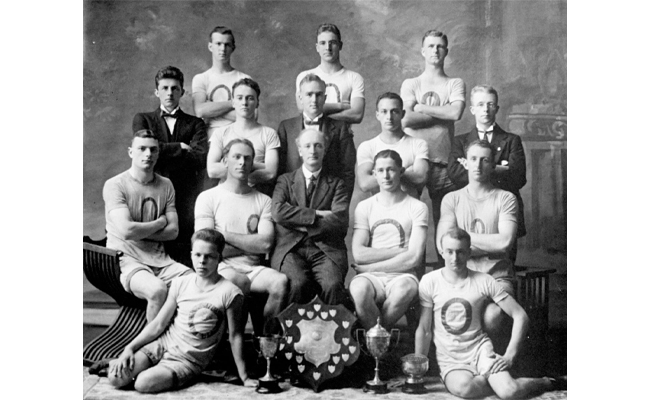In this issue
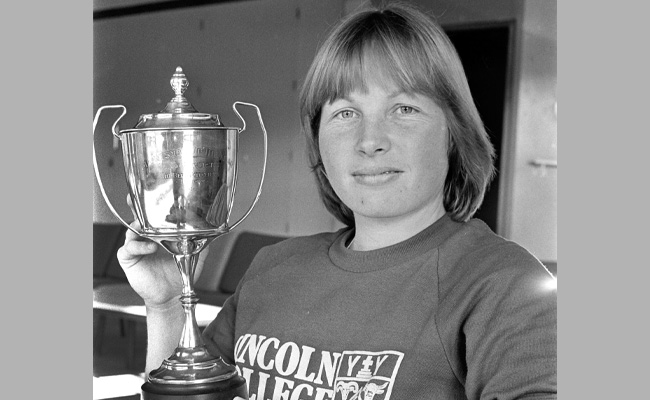
University of Otago Sportsperson of the Year (1984)
As one of very few Kiwi footballers who can claim to have beaten the USA and in fact scored a winning goal against them, Otago alumna Alison Grant (Dip PE, 1984) is very excited about the current FIFA Women’s World Cup.
However, this is not her only claim to fame – the year she graduated from Otago, she beat a future World Cup-winning All Black captain to be named University of Otago sportsperson of the year.
“Yeah, I beat David Kirk to the award, it was quite an achievement, but it didn’t worry me. I thought it was great for a minority sport, you kind of expected an All Black to win it, but they missed out that year.”
Jump forward 39 years and the FIFA World Cup, the largest women’s sports event of the year, is currently dominating the sports world on both sides of the Tasman.
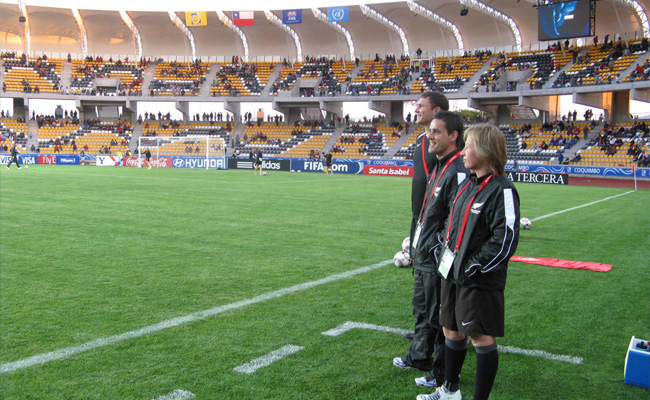
Coaching the NZ Women’s Under 20 World Cup squad in Chile (2008)
Alison says the FIFA Women’s World Cup is great. She attended the opening game in Auckland and at the time of her interview, planned to attend several games in Wellington as well.
She says she’s faithful to the cause, but knows it will be a very hard road for the Football Ferns. “You can’t compare this team to the World Cup winning Black Ferns. It’s a different sport and the players are realistic and hoping to do well in the pool games and get through to the next round.”
Who does Alison think will be successful at this World Cup? “Well, I’m a keen supporter of the Aussie (Australian) team. I think they’re a very good team (when they have their full squad on the pitch) and they’re very well coached. I’d love for them to be successful, for this part of the world I think it’s important. I also like how the Germans play, but you can’t discount the USA or the Swedes and England’s up there too. There are some very good teams out there, but some have lost key players in the last six months, which could be a telling factor,” she says.
On making the New Zealand national side at only 18 and becoming Otago’s first Football Fern, while in the seventh form (now Year 13) at Logan Park High School, Alison says she knew that she was an outsider coming into an environment that was very Auckland/Wellington based. “But I knew that I had a chance of being selected, fortunately the selectors saw something from me.”
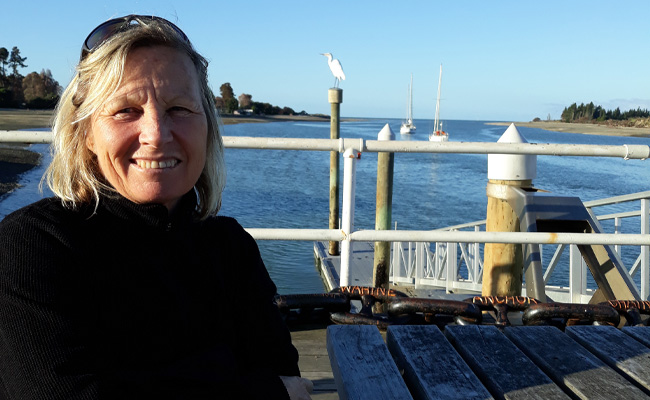
Alison Grant in Mapua
On beating current two-time world champions USA at the 1987 Women’s Invitational World Cup in Taiwan:
“I’ll be honest it’s certainly vague now, we were rapt that we won the game. We cleared our defensive line getting it out wide and Julia Campbell got the ball through and I managed to get on the end of it somehow, [managed to get her head to the ball from the cross], something which would not be my strength as I’m not the tallest player.
“We were a pretty no-nonsense group of players, determined and worked hard for each other. To us the USA were just another team on the park, that we went out to win against. They were certainly a class team, but their stars were pretty young and just coming on board on the international scene.”
She started on the right wing, but most of her football was either playing through the middle or out on the left side. “I was a natural right footer, but I could play off both feet, so more and more I was put out on the left side of the park.”
If the game was professional in her time would it have made a difference? “I have no regrets playing the sport, it would have been nice to have remuneration, but it wasn’t the way it was then. Hence you had to do your day job. I did phys ed at Otago (one of the last students to complete the Diploma in PE) and trained to be a teacher but at some point I had to make a decision and I was a typical student, pretty broke, and you have to go looking for a job.
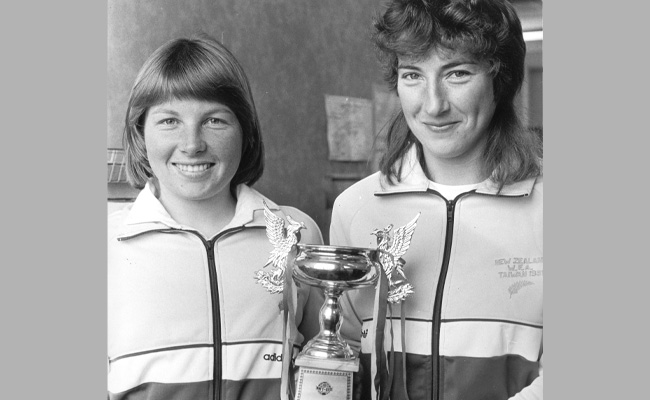
Alison Grant (left) and Vivienne Robertson with the “Runners-up” trophy at the 1981 World Women’s Football Tournament
“New Zealand is home, I like living here. I grew up as an Air Force kid, so we lived in Singapore and we did a lot of travel in that area. Would I have wanted to have played football overseas, I guess I would have given it a go, but I don’t know if that would have been me.
“Growing up in Dunedin you got used to the cold in the winter, but that certainly toughens you up. I had huge support from my clubs at Caversham, North End and later at the uni.
“I loved the work we did as phys ed students. I enjoyed the anatomy and physiology units and going to the med school bod (dissection) room to learn about muscles and tendons.”
She says she found the timing of some lectures a challenge and didn’t always get to the early morning ones, but says that might still be common today.
“I did the special needs unit as it was an interest of mine and I still teach special needs kids today.”
After graduation she did two years untrained teaching at Tongariro High School, in Turangi. “l loved it there but it was a bit of a shock to the system coming straight from the student life.”
Then she did her teachers’ training diploma in Hamilton and taught there for about six years, before spending 20 years teaching in Christchurch.
“More recently, my partner and I moved to Melbourne for four years, where I did relief teaching. Aussies and Kiwis have a reciprocal agreement in teaching which allowed me to transfer my teaching registration.
“I did a little bit of coaching while there, but they wanted me to transfer all my NZ coaching qualifications, which didn’t interest me.”
Alison has coached many football teams, from club, to regional level and at NZ level. She was the assistant coach of the NZ Women’s U20 team attending the 2006 (Russia), 2008 (Chile) and the 2010 (Germany) World Cups.
Alison now lives in Mapua, near Nelson and after some initial relief work has a permanent part-time role teaching Physical Education at Motueka High School.
“My hours are now reduced as I move closer to retirement.”
Her elder brother, David Grant, studied Mineral Technology at Otago and her younger brother Simon Grant completed a BCom in Accounting at Otago. Her father, former Dunedin GP, Dr Ron Grant (now deceased), completed his medical studies at the University of Otago. In addition, Alison has several nephews and cousins who studied at the University of Otago.
